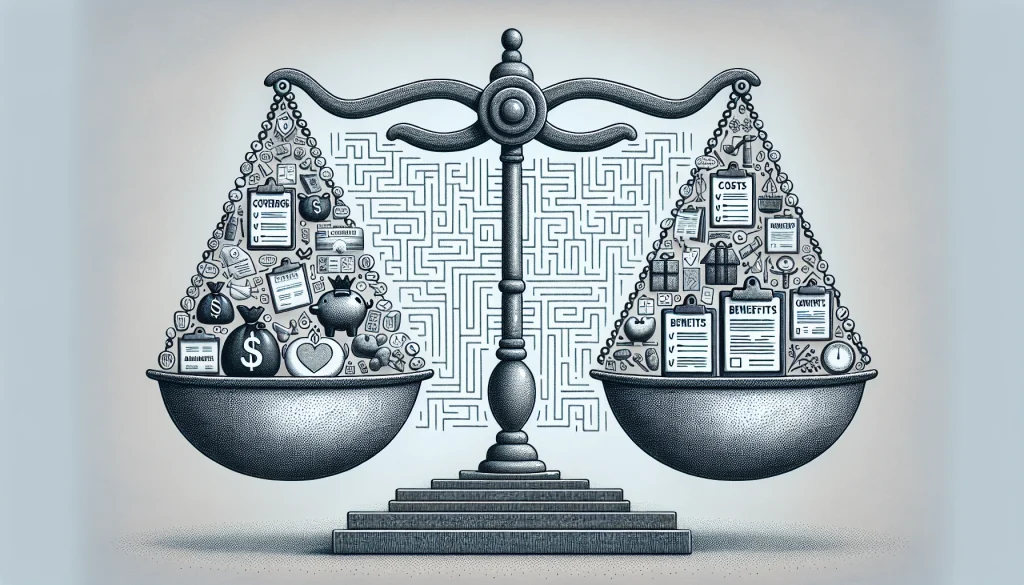Thinking about tapping into your life insurance policy for extra cash? You’re probably wondering how soon you can borrow against it. It’s a common question and one that deserves careful consideration. Understanding the timing is crucial for financial planning.
Table of Contents:
- Understanding Policy Loans
- Cash Value: The Key to Accessing Funds
- Pros and Cons of Borrowing
- Exploring Alternatives
- Seek Professional Advice
- FAQs about how soon can you borrow against a life insurance policy
- How soon after getting life insurance can I borrow money?
- What life insurance policy can you borrow from immediately?
- What is the cash value of a $10,000 life insurance policy?
- How long does it take to build cash value on life insurance?
- What happens if I die with an outstanding policy loan?
- Do I have to make monthly payments on a life insurance policy loan?
- Conclusion
Understanding Policy Loans

Before discussing the timeline, let’s define a policy loan. It lets you borrow money against your permanent life insurance policy’s cash value. Think of it like a loan with your savings as collateral. This is different than using funds from accounts like an IRA versus life insurance, or reviewing income annuities and CD rates.
Cash Value: The Key to Accessing Funds
Remember, you can only borrow against permanent life insurance policies like whole or universal life insurance. Term life insurance doesn’t have cash value. With permanent policies, part of your premium goes toward the death benefit, and part builds cash value. This growth is usually tax-deferred, similar to a Roth IRA. However, this isn’t an immediate benefit.
The waiting period depends on your premiums, the cash value growth rate, and the policy type. Considering various factors is part of good wealth management. This includes not only your premiums but also factors specific to the policy itself.
How Soon Can You Borrow?
Policies typically take two to ten years, or more, to build enough cash value for loans. There’s often a minimum cash value required, varying by company. Some companies have waiting periods after purchase.
Check your policy’s loan provisions for specifics. For instance, whole life insurance loan terms depend on the policy itself. This differs from savings account regulations. Life insurance policies and savings accounts have distinct purposes.
Pros and Cons of Borrowing

Borrowing against your life insurance has pros and cons.
You get access to funds at competitive interest rates with flexible repayment plans. MarketWatch suggests rates typically range from 5% to 8%. You generally don’t need to explain the loan’s purpose. There aren’t typical eligibility requirements either. Unlike regular loans, policy loans don’t affect your credit. They usually don’t need approval (Northwestern Mutual).
However, borrowing affects your death benefit. If the loan plus interest exceeds your cash value, your policy could lapse (Bankrate). Unpaid portions and interest may have tax implications. Consult a personal finance expert for further insights.
Exploring Alternatives
Borrowing from your life insurance may not always be the best solution. Especially if you have a limited cash value or a specific financial goal like making a down payment towards buying a new home. Other banking solutions, like checking accounts or money market accounts could provide necessary access to funds as well.
For shorter-term needs, consider a low-interest personal loan, compare rates, and consult with lenders for various lender reviews. Homeowners might explore a home equity line of credit (HELOC). Weigh these alternatives if your goal is to pay off bad credit, student loans, or an auto loan.
Seek Professional Advice

Deciding when to borrow against your life insurance is a major financial decision. Working with a financial advisor provides personalized guidance. They can help you explore options and understand potential tax implications (IRS Publication).
They can provide insight into the current mortgage rates if your policy loan needs involve a property. This is just one way advisors can tailor guidance for you.
Your advisor will help review your insurance policies, discuss your long-term personal finance goals, and see if there is any need for financial advisors now or in the future.
Conclusion
Figuring out how soon you can borrow against a life insurance policy requires careful planning. Consider your options, benefits, and drawbacks. Assess your cash value. Then decide if borrowing is right for your financial stability. Make informed decisions; don’t rush.
that align When asking “How soon can you borrow against a life insurance policy?” weigh your long-term financial goals. Consider various insurance policies, including variable universal life. Accumulated cash value can supplement your death benefit and offer tailored solutions, that align with your needs at different life stages. For example, as you age, your needs may shift from a death benefit to building additional cash value.
Seek professional advice for personalized guidance (ThriveXDNA). This helps understand policy terms and avoid potential fraud (EthicsPoint). Borrow from your life insurance only when it’s financially beneficial (Insurance Information Institute). Remember, borrowing may have implications when managing a small business or filing income tax returns.
FAQs about how soon can you borrow against a life insurance policy
How soon after getting life insurance can I borrow money?
You can borrow once enough cash value accumulates. This usually takes a few years. Specifics vary among insurers and policies. Your life insurance company will be able to provide you with details about the current loan rate.
What life insurance policy can you borrow from immediately?
No policy allows immediate borrowing. Cash value must accrue first. Only permanent policies, like whole or universal life, offer this option. There are multiple insurance terms and specific life insurance terms to know when comparing term life insurance options.
What is the cash value of a $10,000 life insurance policy?
Cash value isn’t tied to the death benefit. It accrues over time based on premiums, policy specifics, and possibly fluctuating loan rates. This accumulation generally follows guidelines as outlined in “Part I Section 72. Annuities; Certain Proceeds of Endowment and Life Insurance Contracts (Also §§ 1001, 1011, 1012, 1221, and 1234A)”. This section specifies how funds accrue, which is separate from the stated death benefit.
How long does it take to build cash value on life insurance?
Building substantial cash value typically takes years. It depends on your premiums, growth rates, and policy terms. While it accrues separately as defined in Part I Section 72, how quickly and effectively it grows is unique to each individual policy and can fluctuate based on varying factors and specific life insurance terms outlined in the individual contracts and guides that pertain to these products. Many people wonder what their life insurance quotes will be when searching for various types of life insurance products such as term life policies.
What happens if I die with an outstanding policy loan?
If you pass away with an unpaid policy loan, the outstanding loan balance plus any accrued interest will be deducted from your policy’s death benefit before it’s paid to your beneficiaries. This means your loved ones will receive a reduced payout. For example, if your death benefit is $250,000 and you have an outstanding loan of $50,000, your beneficiaries would receive $200,000. It’s important to monitor your loan balance carefully and consider the impact on your beneficiaries when deciding whether to repay the loan during your lifetime.
Do I have to make monthly payments on a life insurance policy loan?
No, life insurance policy loans don’t require monthly payments or follow a strict repayment schedule. This flexible repayment structure is one of the key advantages of borrowing against your life insurance. You have the freedom to repay the loan whenever you choose, repay it partially, or even not repay it at all during your lifetime. However, it’s important to understand that any unpaid loan amount, including accumulated interest, will be deducted from your policy’s death benefit when you pass away. While there’s no mandatory payment schedule, many financial advisors recommend making at least interest payments to prevent the loan balance from growing too large and potentially causing your policy to lapse. If the total loan balance plus interest exceeds your policy’s cash value, your coverage could terminate, leaving you without life insurance protection and potentially creating a taxable event. Therefore, even though monthly payments aren’t required, staying aware of your loan balance and making periodic payments when possible is a wise financial strategy.





